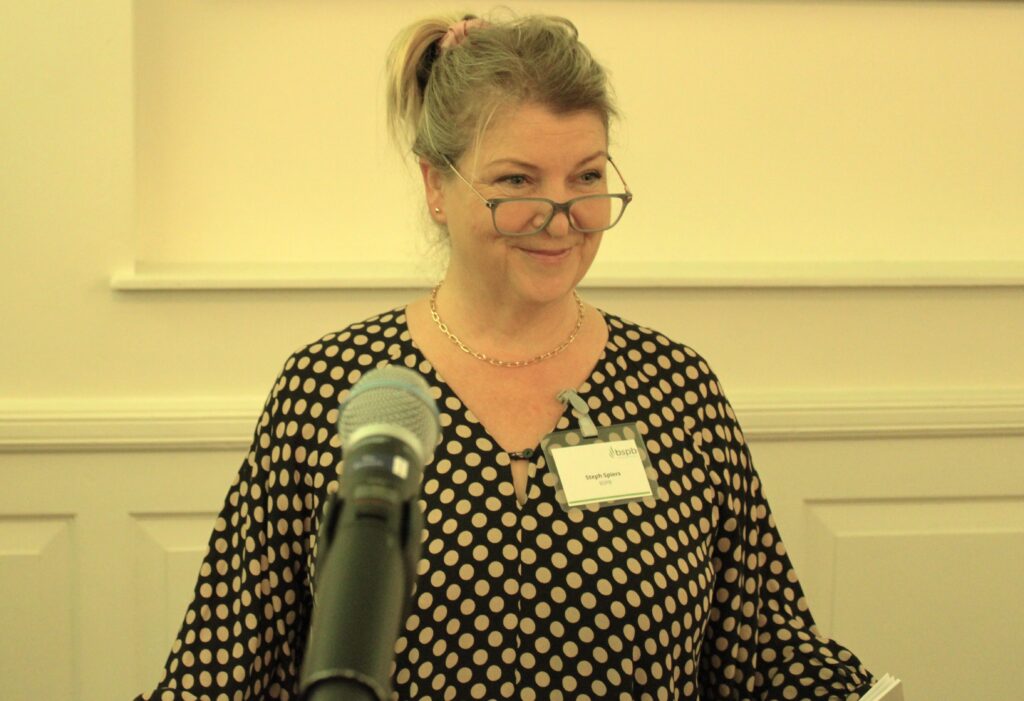How the BSPB continues to promote UK’s seed sector.
WHY IT MATTERS
The British Society for Plant Breeders (BSPB) recently held its Annual General Meeting and celebrated its 57 years in existence. With the recent departure of BSPB’s CEO Samantha Brooke, the organization underwent a restructuring in July 2023, with Steph Spiers coming in as Head of Business Operations, and Anthony Hopkins as Head of Policy. Seed World Europe sat down with Robin Wood, BSPB Chairman; Steph Spiers, Business Operations Manager; and Chris Guest, deputy Chairman at the BSPB to get their take on the most recent developments within the organization, and how its members are coping with the UK leaving the EU.
“One thing we keep reminding ourselves of is BSPB’s two-part mission. First, we must demonstrate the importance of plant breeding to the sustainability of British agriculture and the contribution it makes to the economy. And second, we need to represent our members,” says Wood.
“We really want to promote our industry, not just to politicians and government, but to a much wider group of stakeholders,” he adds. “At the same time, we need also to engage closely with the EU too, as we need to ensure that the UK plant breeding and seed sector does not become isolated from Europe. We now really want to look ahead and to engage and lobby with more vigour than in the past.”
Through the years, the role of the BSPB has evolved into two key parts. The first is operational, relating specifically to BSPB’s financial and technical side. This involves the licencing, collecting, and disbursing of royalties, as well as overseeing the national list trials. The second is policy-oriented, where the BSPB represents and promotes the interests of the UK plant breeding industry. BSPB represents industry in the UK, in the EU and internationally. It also works within industry towards other stakeholders in the chain with the help of a lot of communications.
Reasons to be Proud

“There are a number of things that we can be proud of,” says Spiers. “First, we have a great track record of royalty/licence collection, where other European national organizations look to us to see how we are so successful. And the fact that we have implemented online payments helps with the efficiencies of our operations. Apart from that, we continue to provide high quality trial data for National Listing and for Recommended List systems.”
Wood concurs and mentions that all BSPB members should be proud of how the BSPB is working. “We have a team that continuously seeks to be efficient and ensures the royalty collection from their IP”.
Precision Breeding
At least part thanks to BSPB and the whole seed sector’s lobbying efforts, the UK’s Genetic Technology Bill, also called the Precision Breeding Bill, received Royal assent in March 2023 and is on its way to come into force as law. This is a bill that regulates the release, marketing and risk assessment of precision bred plants and animals as well as the marketing of food and feed produced from such plants and animals. Spiers emphasizes that the underlying rational for the bill is that precision-bred varieties pose no new or additional risks compared to conventionally bred ones.
“We’d like to express our gratitude to DEFRA, the relevant Ministers and all others for their support in this,” says Wood. However, he adds, “We’re not there yet, as more lobbying is needed.”
“We very much appreciate this bill as it can help us to deliver more innovation to support our customers,” Spiers agrees. “But apart from this boost towards more innovation, we also need our UK seed sector to be sustainable as well.”
Challenges Ahead
The BSPB also realizes that there are challenges, especially in the movement of seeds between the UK and the EU.

“It is more challenging now to move seeds for research purposes, for introductory trialling and crossing agreements between breeders, and for commercial sales,” says Wood. “In addition, we have challenges with the National List, as there are 200 variety applications which are delayed over one year. All this leads to an extra administrative and cost burden.”
He explains that the delays in National Listing approvals means a loss of income and a less competitive UK farming sector.
“There’s an extra cost of DUS testing, and at the same time a reduction of innovation that is reaching the UK farmers,” Wood says. He says that the differences in seed treatments between the UK and the EU also lead to a less competitive UK farming sector.
“There are a few things that the UK seed sector should avoid,” says Guest. “We need to avoid becoming isolated, becoming slow to innovate, becoming an unattractive marketplace for investment or an expensive place for food production.”

Food prices in all EU countries and the UK trended upwards starting in mid-2022, as a result of the disruptions caused by the COVID-19 pandemic, extreme weather events and the Russian invasion of Ukraine in 2022. The resulting severe shortages in the agri-food chain, led to higher consumer prices. And since food price levels depend on the food production process, it also affects the seed sector, so the BSPB is keeping a close watch on developments. Where the prices in EU countries started to go down again in the first quarter of 2023, the UK still saw rising food prices. Adverse weather in production regions elsewhere, and extra bureaucracy associated with Brexit, caused food shortages of certain products and empty shelves for specific vegetables and fruits in the past year.
However, there is light at the end of the tunnel: according to retail industry statistics, food prices finally dropped in the UK in September 2023 for the first month in almost two years, offering consumers some respite amid the cost-of-living crisis. The differences in food availability and prices between the UK and EU should not go unnoticed by the seed industry and regulatory bodies says Wood. Because our farmers and growers are often working across several countries in order to supply retailers or the wider food industry with high quality products all the year round and more cheaply, it means that they look to breeders for access to innovative and sustainable genetics (varieties) that perform in a wide range of environments, that they can use with minimal interference, across international borders.
“We are aware of the situation, and it is getting better now, but it will remain on our radar screen for some time,” says Spiers.
A Clear Picture
The BSPB has a clear picture of how it needs to move forward.
“We need to be active in addressing and adapting to issues and changes that are introduced by the UK leaving the EU. And this is done through cooperation with other industry groups and associations,” says Wood.
Spiers agrees and adds that the BSPB needs to maintain its EU and international relationships to promote and position the UK plant breeding sector.
“This means [we need to] continue to participate in the meetings and congresses of Euroseeds and the International Seed Federation (ISF),” she adds.
To continue improving the services to its members, the BSPB in the coming months will review its communication strategies and its policies, including seeking feedback from its members.
“This should lead to a refreshed communication strategy, as we can’t afford to do nothing and our members are fundamental to our society,” says Guest.
“All the work we do is in support of many things, such as food production and food security in the UK, the competitiveness of UK farmers and growers, but also much broader, such as environmental challenges, increased sustainability and the preservation of biodiversity,” says Wood.













